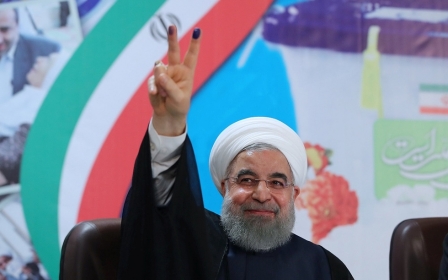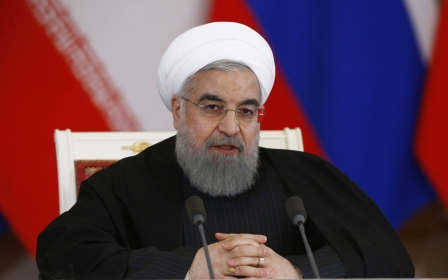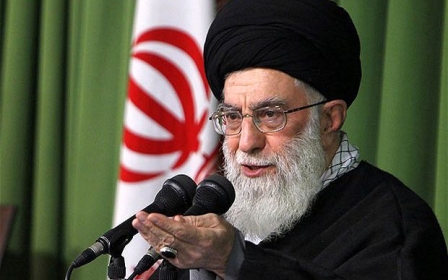Iran's supreme leader slams Rouhani's 'Western influence'
Iran's supreme leader on Sunday criticised the government of Hassan Rouhani for promoting a "Western-influenced" United Nations education plan which his hardline allies have said contradicts Islamic principles.
Ayatollah Ali Khamenei's remarks come before polls on 19 May in which Rouhani is seeking re-election as president.
"In this country, the basis is Islam and the Quran. This is not a place where the faulty, corrupt and destructive Western lifestyle will be allowed to spread its influence," Khamenei told a gathering of educators, according to his website.
"It makes no sense to accept such a document in the Islamic Republic," Khamenei said, referring to the Education 2030 plan proposed by the United Nations Educational, Scientific and Cultural Organisation (UNESCO).
Khamenei did not give details of his opposition to the UNESCO plan, but hardline commentators in Iran have said its promotion of gender equality in education contravened Islam.
"How can a so-called international body which is under the influence of the great powers allow itself to assign duties for countries with different histories, cultures and civilisations?" said Khamenei, who often warns of a "soft war" mounted by the West to topple Iran's Islamic government.
Khamenei has the final say over policy in Iran and in recent weeks has repeatedly distanced himself from Rouhani.
The supreme leader has criticised Rouhani on several issues, including the economy and negotiations with world powers.
He has stopped short of backing any of Rouhani's hardline opponents, who include influential cleric Ebrahim Raisi and Tehran's mayor, Mohammad Bagher Ghalibaf.
A UN human rights report issued in August 2015 said Iran had almost achieved universal enrolment and gender parity at all educational levels.
But the report said that gender-ratio policies adopted in 2012 had led to a fall in enrolment of female students in universities.
New MEE newsletter: Jerusalem Dispatch
Sign up to get the latest insights and analysis on Israel-Palestine, alongside Turkey Unpacked and other MEE newsletters
Middle East Eye delivers independent and unrivalled coverage and analysis of the Middle East, North Africa and beyond. To learn more about republishing this content and the associated fees, please fill out this form. More about MEE can be found here.




